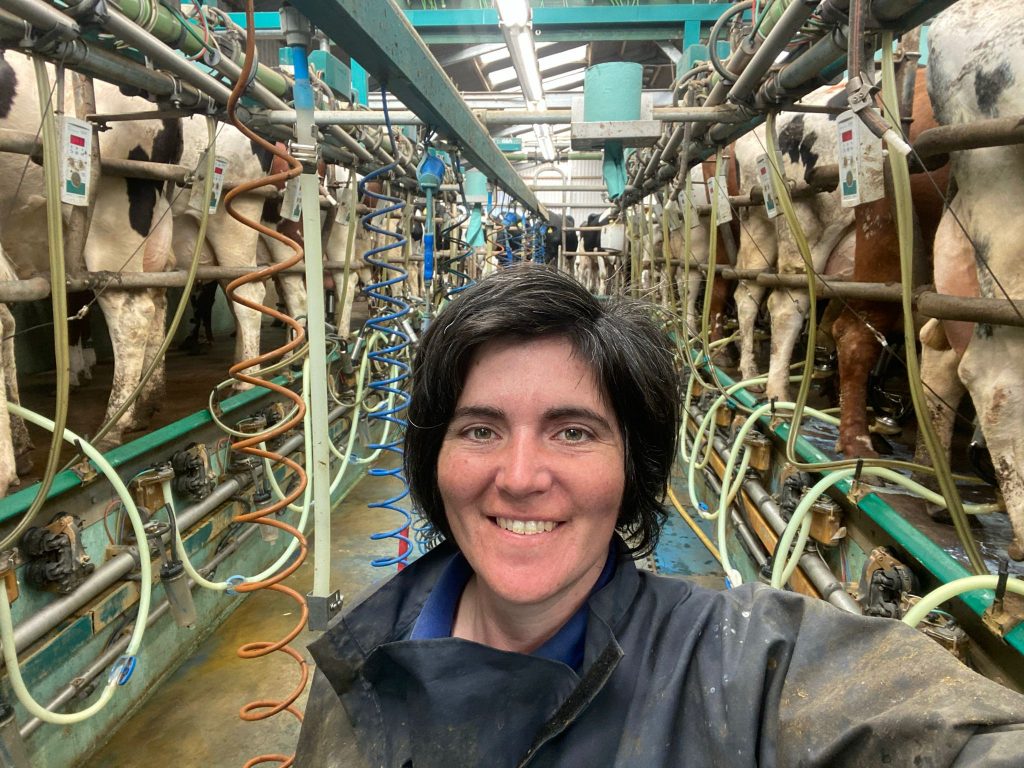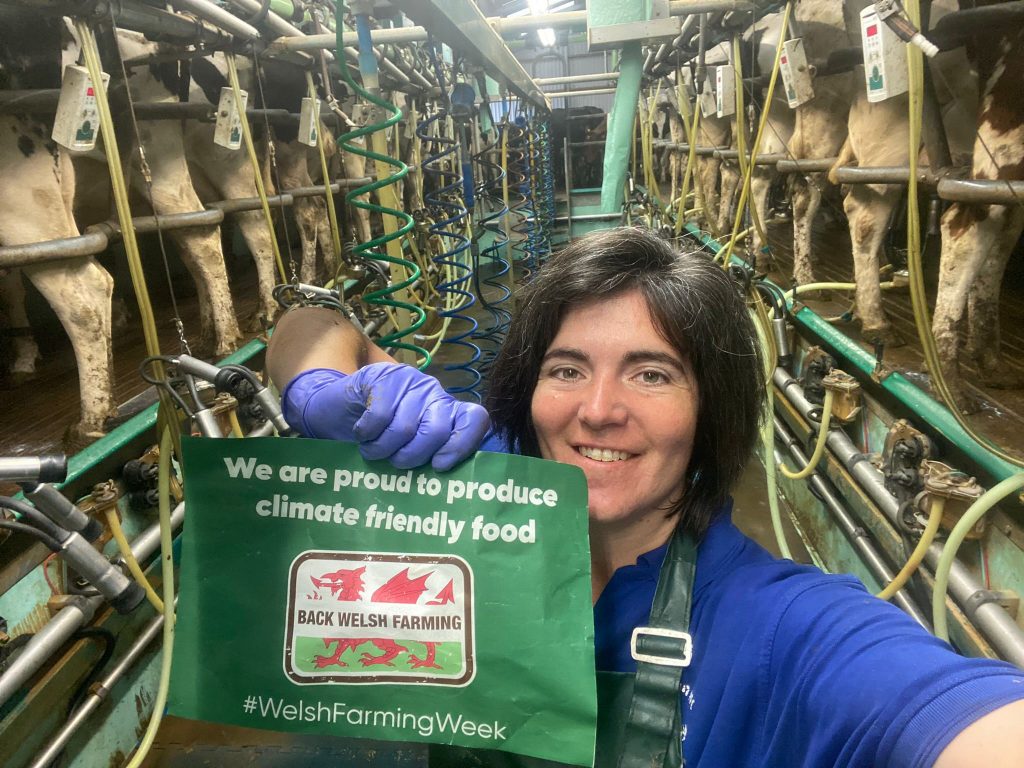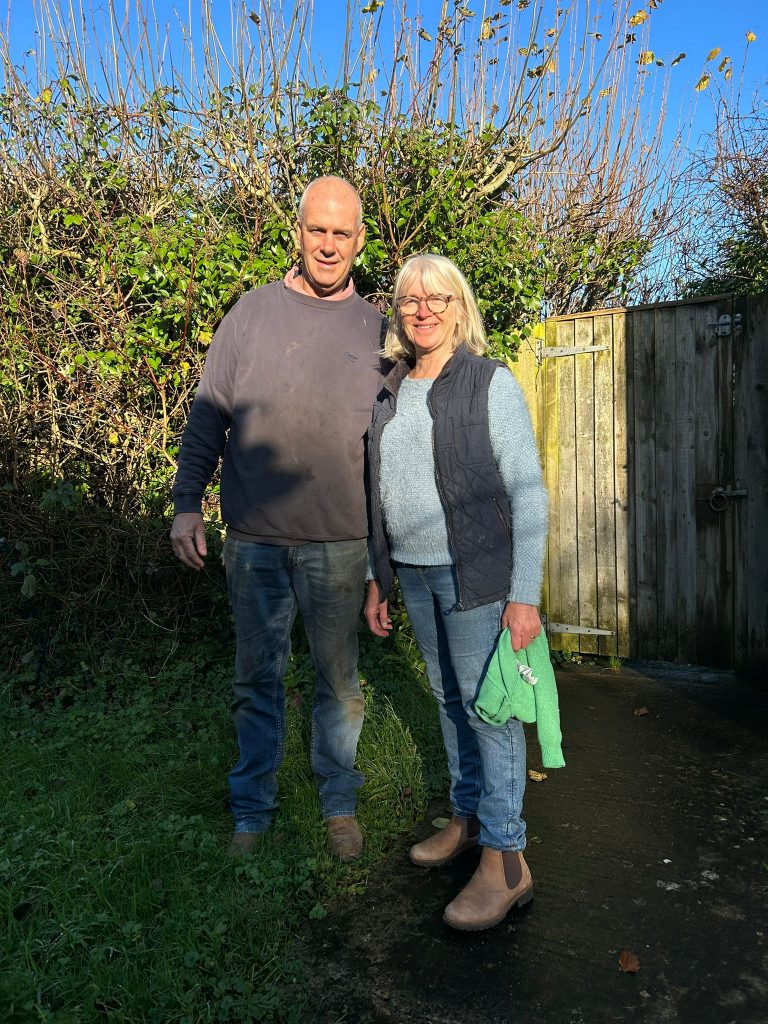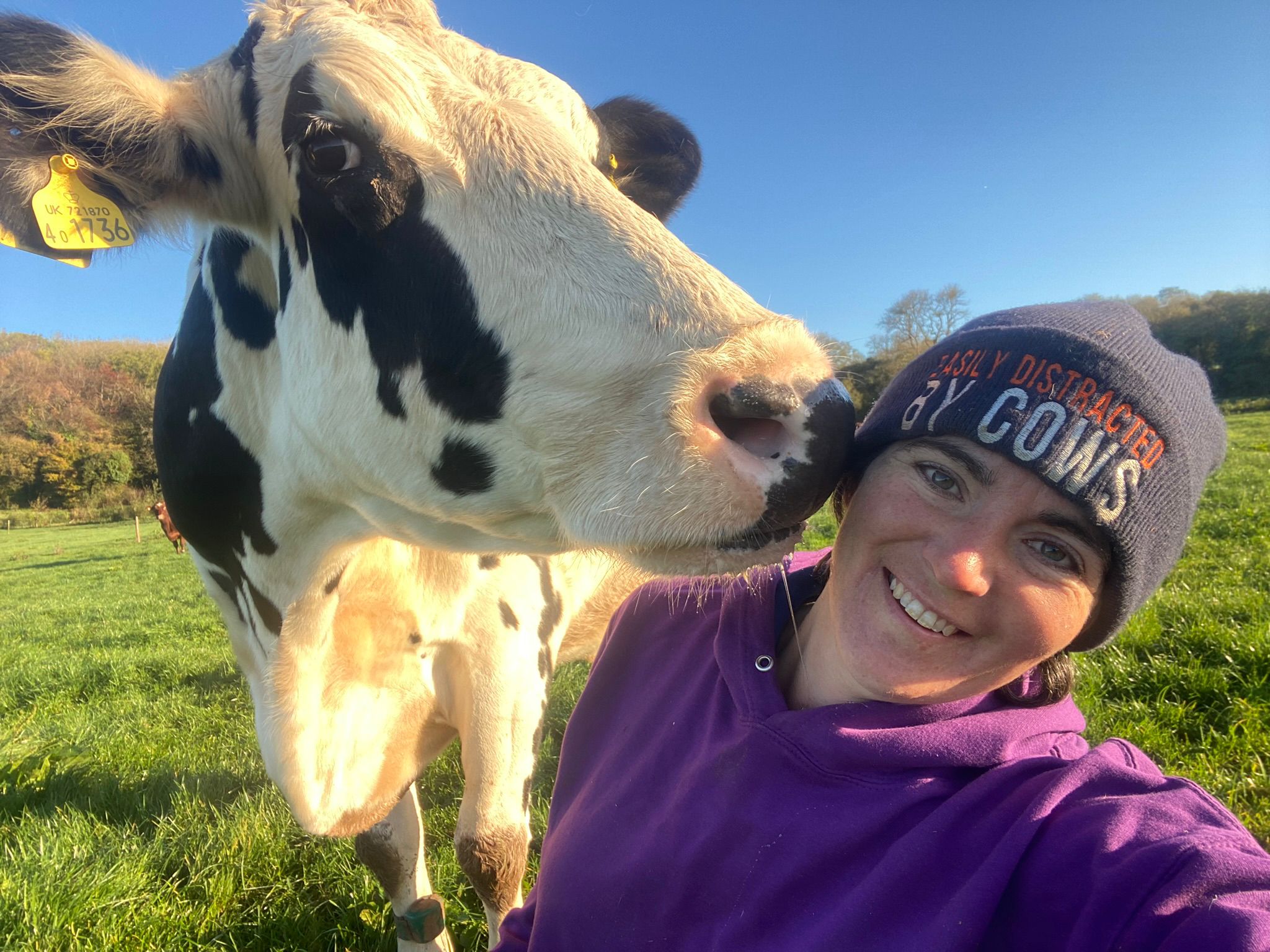“If I give up, I lose my house, I lose my history, my culture” – Abi Reader, Deputy President of the National Farmers’ Union Cymru.
WELSH farmers are facing a fight for survival this Christmas as post-Brexit legal changes, extreme weather and funding problems all take their toll.
Deputy President of National Farmers’ Union Cymru (NFUC), Abi Reader, described the situation as “bleak” and said that Welsh farmers could be forced out of business.
“Christmas time can be difficult (for farmers),” said Ms Reader.
But this year could be even harder as uncertainty surrounding agricultural subsidies may threaten rural communities and the food and drinks sector.
Farmers are concerned about the axing of food production subsidies in 2025. A food production subsidy is a sum of money granted by the government to a farmer to keep the price of food down. Ms Reader said that without them the most vulnerable people in society will suffer because they will not be able to afford food.
Despite discussions between the NFU and the Welsh Government becoming “toxic”, according to Ms Reader, the government said: “We remain absolutely committed to supporting farmers and rural communities throughout Wales.”
What are the changes to farming subsidies in Wales?
Before Brexit, subsidies for farmers in Wales were guaranteed by the EU through two funding streams – the Basic Payment Scheme (BPS) which subsidised food production and Glastir, a sustainable land management funding scheme.
These schemes are ending – Glastir on December 31, 2023, and the BPS in 2024. They will be replaced by the Sustainable Farming Scheme (SFS) in 2025.
“Seeing Glastir coming to an end will have been a massive shock for some farms,” said Ms Reader.
“I think everybody thought that there was going to be some sort of transition into some other sort of payment to keep them going through, but, actually, that hasn’t been the case.”
“There’ll be some farms that will have seen 60-70% of their farm support payment just disappeared.”
The Welsh Government says an interim scheme – the Habitat Wales scheme – was put in place until SFS starts to help farmers through the transition.
The SFS will have three levels of funding available. To profit from the first level, farmers will have to put 10% of their land into planting trees and a further 10% into habitat conservation.
Ms Reader said: “This is a massive, massive barrier and it needs to be more achievable.”

“We’re going to end up with the haves and the have-nots,” said Ms Reader, referring to the farmers who will be able to siphon off 20% of their land for environmental causes and those who will not. Those who cannot are “a bit stuffed”, she said.
These “have-nots” could be forced out of business because they will be unable to access subsidies that were previously available through the EU-funded BPS and Glastir schemes.
The Welsh Government said it has prioritised the BPS 2023 budget, which remains at £238 million, and that the balance payments will be made later this month.
Farmers are concerned that support will not be available for food production itself – now that the BPS will be ending.
“The funding pot hasn’t kept up with inflation since 2016.”
Abi Reader, Deputy President of the NFU
The Welsh Government said: “The proposed scheme actions have been refined considerably to make them more accessible to all farmers, thanks to the input of farmers during an extensive co-design exercise.”
Both Ms Reader and the Welsh Government say that Brexit has impacted farming subsidies in Wales.
“The ongoing impact of leaving the EU… has resulted in a loss of at least £243 million.”
Welsh Government
“The funding pot hasn’t kept up with inflation since 2016,” said Ms Reader.
“If we were still under EU regulations, then there would have been enough pressure from other more agricultural countries to say this payment (to farmers) has to go up.”
The Welsh Government said it is dealing with “the ongoing impact of leaving the EU, which has resulted in a loss of at least £243 million of replacement EU funding”.
Why has the Welsh Government introduced the new farming subsidy scheme?
Climate change is a key reason behind the new scheme.
“The aim of this scheme is to support farmers to produce food sustainably while dealing with the climate and nature emergency which is one of the biggest threats to sustainable food production and agriculture,” said the Welsh Government.
Farmers themselves are feeling the pressure from extreme weather events. They are “on the coal face of climate change because everything that we do is dictated by the weather,” said Ms Reader.
“This year alone, we’ve had snow, drought and flooding all in twelve months. The success or failure of your business can rely on a good harvest.”

Farmers believe they are shouldering more responsibility than other industries to achieve the net zero target, through legislation like the SFS tree-planting scheme.
“Farmers are being asked to do more and more and more. It’s not just food production anymore – it’s (for the) environment. And yet the pot that they’re getting is getting smaller and smaller and smaller,” said Ms Reader.
“Huge risk for very little reward”: Farming ‘no longer appeals to workers‘
Sara and Ian Hardy are farmers from Wenvoe in the Vale of Glamorgan. Like Ms Reader, they have first-hand experience of the issues that the industry faces where there is “huge risk for very little reward”.
Farming is a difficult career and the industry is facing multiple challenges. The Hardys believe this is turning people away from the profession as “youngsters do not want to go into a struggling industry”.
Multi-generational farms in Wales, like their own, may not survive. Their son has left Wales and now lives in Norway because “it’s a better life” there.

“Extremes of weather are already here – biblical events – what they used to call ‘once every 100 years’ we are now seeing once every five years.”
Ian Hardy, farmer from Wenvoe, Vale of Glamorgan
“Everybody who is arguing has a full belly,” said Mr Hardy, but warned that this may not be the case forever as food poverty may rise if the industry is not properly supported.
Climate change has affected the Hardys’ lives and harvests.
“Extremes of weather are already here – biblical events – what they used to call ‘once every 100 years’ we are now seeing once every five years,” said Mr Hardy.
“We have to farm in an environmentally sustainable way, but we also have to make a profit.”
The future of the agricultural industry relies on farms being financially stable.
It is not just the farmers who will suffer. Ms Reader said food production must be subsidised and cannot be dictated by market forces because “if we do that, the price of food will go up, because it will become a competitive issue.
“You cannot let food become competitive because the most vulnerable people in society will suffer because they won’t have enough money to pay for it.”
Farming in Wales is on a precipice. Many of the issues are down to funding.
The Welsh Government said: “We have been very clear we are facing an extremely challenging financial situation – the toughest since devolution – which means we must make some very difficult decisions.”
Ms Reader said: “We will not go down quickly. What will go down quickly is the rest of the rural economy. Because we will stop employing to try and save money. We’ll stop buying to try and save money. We will stop investing.”
“If I give up, I lose my house, I lose my history, my culture.”
Abi Reader, Deputy President of the NFU
“The farmer will be the last one standing because farmers will hang on for grim death. We all will.”
Behind Ms Reader, as she speaks in her living room, is a framed picture of one of her cows.
“It would take me a lot to give this up,” she said.
“If I give up, I lose my house, I lose my history, my culture.”



